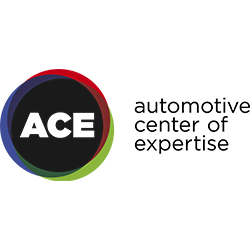Een leraar wordt een daltonleraar en een school een daltonschool als er gewerkt wordt vanuit een daltonvisie. En je bent een goede daltonleraar en een goede daltonschool als die eigen daltonvisie op een effectieve en efficiënte manier wordt gerealiseerd. Dalton: L E F ondersteunt teams, individuele leraren en pedagogisch medewerker zich bewust te worden van de eigen daltonvisie en helpt om die eigen visie door te ontwikkelen. Het boek biedt ook praktische ideeën om een onderwijspraktijk te realiseren die gestoeld is op zo’n daltonvisie. Met andere woorden: in Dalton: L E F worden de ‘why’, ‘how’ en ‘what’ van het daltononderwijs besproken. Het gaat daarbij om breed persoonsvormend onderwijs dat geïnspireerd is op het gedachtegoed van Helen Parkhurst, waarbij kinderen leren om mee te praten en mee te beslissen over het eigen leren en over het onderwijs dat daarvoor ingericht moet worden. Want een stem krijgen in de eigen ontwikkeling levert kinderen ervaringen op om uit te groeien tot een ‘mens met lef’.
MULTIFILE
The complex amino acid (l-threo)-3-[3-[4-(trifluoromethyl)benzoylamino]benzyloxy]aspartate (l-TFB-TBOA) and its derivatives are privileged compounds for studying the roles of excitatory amino acid transporters (EAATs) in regulation of glutamatergic neurotransmission, animal behavior, and in the pathogenesis of neurological diseases. The wide-spread use of l-TFB-TBOA stems from its high potency of EAAT inhibition and the lack of off-target binding to glutamate receptors. However, one of the main challenges in the evaluation of l-TFB-TBOA and its derivatives is the laborious synthesis of these compounds in stereoisomerically pure form. Here, we report an efficient and step-economic chemoenzymatic route that gives access to enantio- and diastereopure l-TFB-TBOA and its derivatives at multigram scale.
DOCUMENT
As the Dutch population is aging, the field of music-in-healthcare keeps expanding. Healthcare, institutionally and at home, is multiprofessional and demands interprofessional collaboration. Musicians are sought-after collaborators in social and healthcare fields, yet lesser-known agents of this multiprofessional group. Although live music supports social-emotional wellbeing and vitality, and nurtures compassionate care delivery, interprofessional collaboration between musicians, social work, and healthcare professionals remains marginal. This limits optimising and integrating music-making in the care. A significant part of this problem is a lack of collaborative transdisciplinary education for music, social, and healthcare students that deep-dives into the development of interprofessional skills. To meet the growing demand for musical collaborations by particularly elderly care organisations, and to innovate musical contributions to the quality of social and healthcare in Northern Netherlands, a transdisciplinary education for music, physiotherapy, and social work studies is needed. This project aims to equip multiprofessional student groups of Hanze with interprofessional skills through co-creative transdisciplinary learning aimed at innovating and improving musical collaborative approaches for working with vulnerable, often older people. The education builds upon experiential learning in Learning LABs, and collaborative project work in real-life care settings, supported by transdisciplinary community forming.The expected outcomes include a new concept of a transdisciplinary education for HBO-curricula, concrete building blocks for a transdisciplinary arts-in-health minor study, innovative student-led approaches for supporting the care and wellbeing of (older) vulnerable people, enhanced integration of musicians in interprofessional care teams, and new interprofessional structures for educational collaboration between music, social work and healthcare faculties.
Erasmus project about training cultural workers for facilitating rural youths culture
MUSE supports the CIVITAS Community to increase its impact on urban mobility policy making and advance it to a higher level of knowledge, exchange, and sustainability.As the current Coordination and Support Action for the CIVITAS Initiative, MUSE primarily engages in support activities to boost the impact of CIVITAS Community activities on sustainable urban mobility policy. Its main objectives are to:- Act as a destination for knowledge developed by the CIVITAS Community over the past twenty years.- Expand and strengthen relationships between cities and stakeholders at all levels.- Support the enrichment of the wider urban mobility community by providing learning opportunities.Through these goals, the CIVITAS Initiative strives to support the mobility and transport goals of the European Commission, and in turn those in the European Green Deal.Breda University of Applied Sciences is the task leader of Task 7.3: Exploitation of the Mobility Educational Network and Task 7.4: Mobility Powered by Youth Facilitation.
Centre of Expertise, onderdeel van Hogeschool Rotterdam, Hogeschool van Arnhem en Nijmegen, Fontys

Centre of Expertise, onderdeel van Fontys
Lectoraat, onderdeel van Saxion
